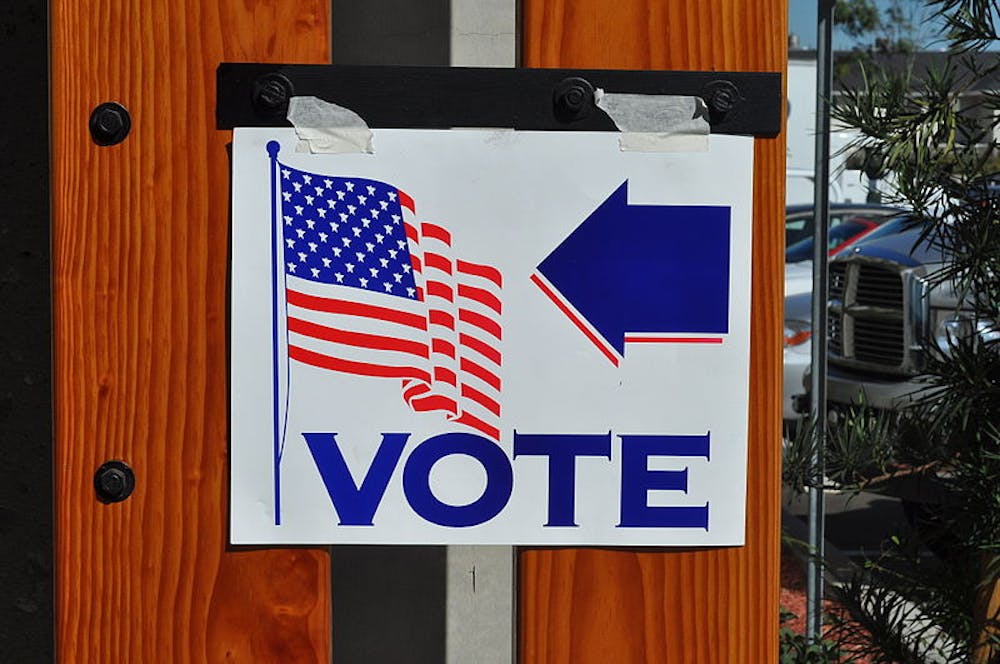The University hosted a webinar titled “Post-Election Analysis 2020” on Nov. 12 to discuss the results of the 2020 presidential election and compare them to pre-election polls.
The event was moderated by Dorothea Wolfson, director of the Master of Arts in Government, and featured faculty members Emily Ekins, director of polling at the Cato Institute, and Al From, the founder of the Democratic Leadership Council.
After several days of counting votes, former Vice President Joe Biden was elected as the 46th president on Nov. 7, defeating President Donald Trump by a smaller margin than polls predicted.
Ekins explained that leading up to Election Day, Biden was maintaining a seven- to eight-point lead against Trump in most polls.
“Many political analysts expected that Tuesday was going to be a pretty early night. We’d all be in bed, knowing who won the presidency. But things didn’t go exactly that way,” she said.
Ekins pointed out that while most predictions remained within their margin of error, they overwhelmingly underestimated Trump’s performance and the Republican House and Senate candidates.
“Though [the polls] did a fairly decent job at predicting who was going to win which state... the margins were off,” she said. “Polls consistently seemed to underestimate Trump. People thought that this was going to be a fairly straightforward win for Biden.”
Ekins noted that poll analyzers at FiveThirtyEight estimated that 225 to 254 seats in the House would go to the Democratic Party. As of now, that number sits at 219, noticeably lower than predicted.
“This is not just a phenomenon connected to Trump, but it was also affecting how House and Senate races on the Democratic and Republican side were thinking about this election,” she said.
She suggested several reasons why the polls might have been off, including under-surveying, poor sampling, lying to pollsters and Trump supporters refusing the survey.
To solve this, Ekins explained that pollsters will probably weigh certain viewpoints heavier in future polls.
According to her, poor estimations are a major problem facing pollsters.
“Polls weren’t always like this. 2012, 2008, they were pretty accurate,” Ekins said. “We have to get to a place where people aren’t so afraid and have such low social trust in institutions, where they’re not afraid to tell us who they’re going to vote for.”
From agreed that the polls did a poor job of predicting the election.
“Despite the suspense, it really wasn’t a close election,” he said. “For Democrats, it’s a very simple lesson that they can never learn... demographic advantages doesn’t necessarily lead to victory.”
From also pointed out that the electorate is getting more polarized and divided. During the webinar he showed attendees the demographic breakdowns of the election.
According to Ekins, election polls are an important way for Americans to understand their country and express their beliefs. Having them be inaccurate, she said, is a problem.
“For people that work on the campaign, their internal polls were wrong too. And that’s problematic for them because they don’t know how to allocate resources. They don’t know where they’re behind or where they’re ahead,” she said.
From disagreed slightly, downplaying the importance of election polls by arguing that the U.S. is currently oversaturated with them.
“The question of whether we need all these election polls: probably not,” he said.
In an email to The News-Letter, graduate student Matthew Witkin stated that he enjoyed the event.
“I appreciated the clarity the speakers gave when discussing hot topics this election season,” he wrote. “The ideas and insights they presented really helped inform a lot of the discussions I have had with friends and family about the election, particularly since this one has had so many twists and turns.”
Graduate student Philip Rosenstein, who also attended the event, told The News-Letter that he found the webinar insightful.
“The topics that were covered were pretty salient,” he said. “There was a lot of data that was presented during the webinar, and it was helpful to see how consistent that polling error was.”
Rosenstein expressed interest in attending similar events in the future, especially after Georgia’s runoff elections.
“Most of the people who are working in polling are waiting for more data to comb through,” he said. “Once more of that data is available, it’d be awesome to have another postmortem... to add some more insights on the election.”
Correction: The original version of this article misattributed Emily Ekins’ quotations.
The News-Letter regrets this error.





